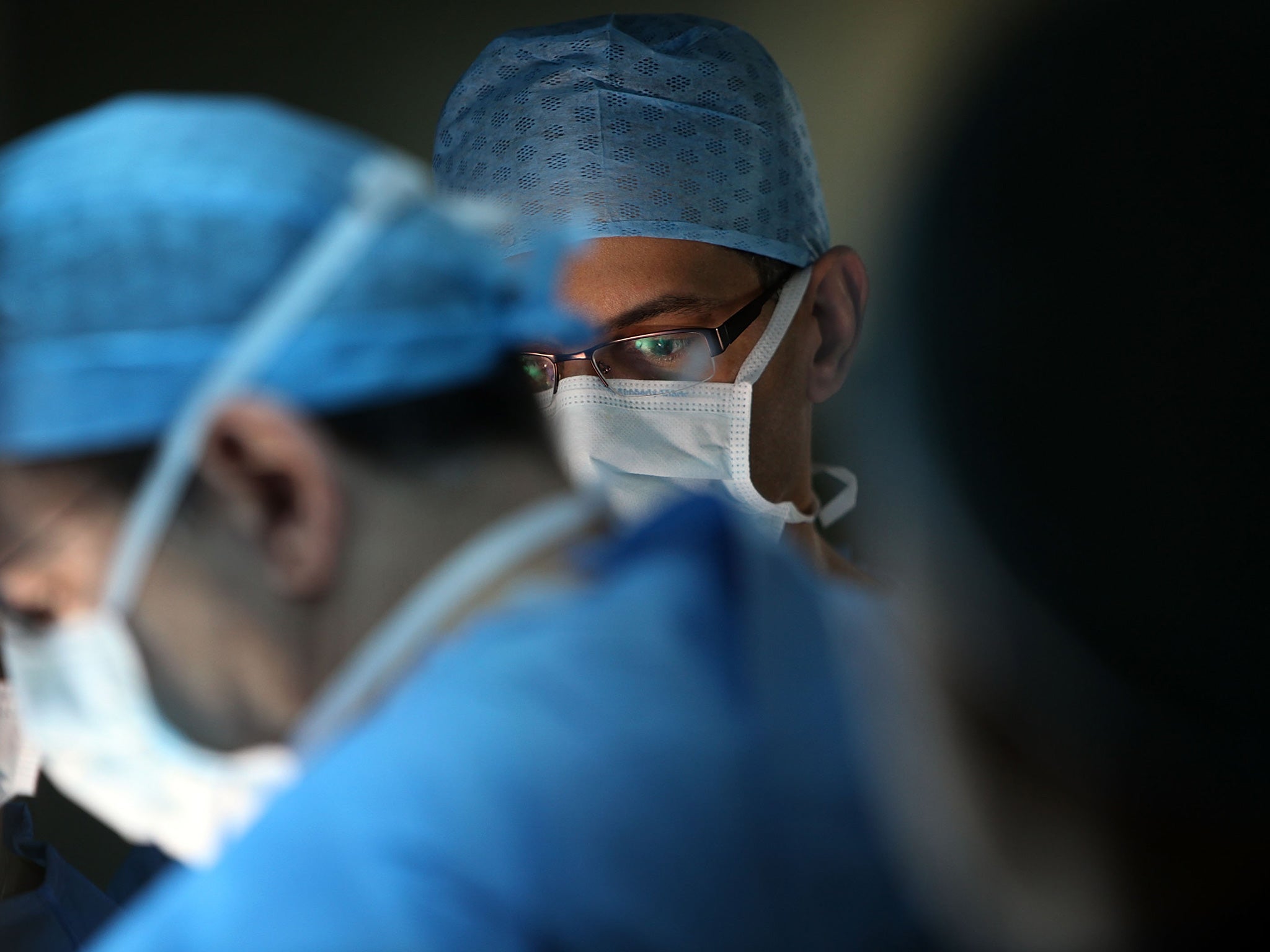Doctors and nurses must 'step up to the plate' to tackle NHS leadership crisis, says chief inspector of hospitals
Exclusive: Chief inspector of hospitals says crisis of leadership is the main factor behind poor care

Doctors and nurses need to “step up to the plate” and help tackle a crisis of leadership in the NHS, the chief inspector of hospitals has said. Professor Sir Mike Richards said the health service’s financial problems were making it “very, very difficult” for even the best hospitals to deliver good patient care.
However, speaking exclusively to The Independent on Sunday, he added that some hospitals were coping better than others, and those that were struggling needed “better leadership” more than extra money.
The Care Quality Commission’s (CQC) hospital inspectorate has now visited 70 per cent of NHS trusts since Sir Mike’s appointment as chief inspector in July 2013. While two hospital trusts have been rated outstanding and 16 good, 68 have been told they must improve, and 12 have been rated as inadequate.
Increases in health spending have not kept pace with demand in recent years, and the NHS in England has been told it must make savings of £22bn by 2020. However, asked if funding shortages were to blame for substandard care, Sir Mike said: “I don’t think that is the main factor.
“I have been round a lot of the NHS and have asked the question of very senior people: if I could wave one magic wand and it’s either to give you more money or to give you better leadership, they almost all say ‘I’d choose better leadership.’ I don’t want to diminish the financial problem. Even the ones at the top end are finding it very, very difficult. But in those that are struggling, if we could get the better leadership that would be a major contribution to dealing with the financial problem.”
Under the new regime at the CQC, set up following the February 2013 report into failings at Mid Staffordshire NHS trust, inspection teams, including doctors, nurses, managers and patients, have appraised most of the country’s hospitals, mental health and community services.
Trusts branded inadequate are placed into special measures and often partnered with a high-performing neighbouring trust. Many of the trusts placed in special measures, such as Basildon and the George Eliot, Nuneaton, have now been taken out of special measures.
Pressure on hospitals has led to a string of chief executive resignations in recent months, often in the wake of damning CQC reports. According to research by the Health Service Journal, the average tenure of an NHS trust chief executive is three years.
Asked whether the resignations concerned him, Sir Mike said: “What does concern me is that we should have good leadership in the NHS.
“That’s not just the chief executive. It is also the medical director, the director of nursing, the chief operating officer, the finance director but also the leadership at service level as well as at trust level.
“The trusts we’re rating good and outstanding don’t have difficulty getting clinicians to step up to the plate to be clinical leaders. If you go to somewhere like Frimley Park [rated outstanding], they have no difficulty getting clinicians to take on leadership roles.” NHS hospitals are anticipating a total overspend of £2bn this year, and are under intense pressure to cut budgets and reduce reliance on expensive agency staff.
Sir Mike said struggling hospitals were becoming caught in a “vicious spiral”, admitting too many patients, forcing them to open overflow wards and cancel operations. Some hospital bosses have said bed capacity problems are caused by a lack of community care beds and support. Council care budgets have been slashed by 40 per cent in five years.
While it was “likely” this was contributing to the problem, Sir Mike said well-managed hospitals were coping. “The best hospitals are saying ‘Don’t let’s open more beds – let’s work hard to ensure people who don’t need to come into hospital, don’t come in’. If they do come to A&E, that may mean having ambulatory services so that you don’t need to admit the patient.
“[The best hospitals are asking] are physicians and surgeons coming to A&E to see if patients need to be admitted or not? I recognise how difficult it is, but the best hospitals are managing this and it is where hospitals are losing a grip on that, that it is a spiral that is financially damaging and very bad for patients.”
Last month, the CQC rated the renowned Addenbrooke’s Hospital, Cambridge as inadequate, leading to accusations of heavy-handedness. Sir Mike defended his assessment, saying patient safety had been compromised because managers had failed to control the “flow” of patients through the hospital, leading to over-stretched staff working in areas unfamiliar to them.
Subscribe to Independent Premium to bookmark this article
Want to bookmark your favourite articles and stories to read or reference later? Start your Independent Premium subscription today.

Join our commenting forum
Join thought-provoking conversations, follow other Independent readers and see their replies